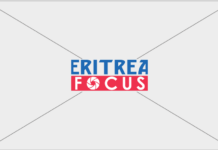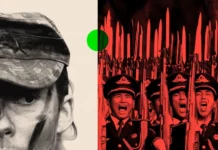Source: UNHRC
UN Human Rights Council
59th session – Item 2
L.1 – General Comment
Discontinuation of the Mandate of the Special Rapporteur on the situation of human rights in Eritrea
EU General Comment
Mr. President,
I am delivering this general comment on behalf of the European Union on the draft resolution L.1 entitled “Discontinuation of the Mandate of the Special Rapporteur on the situation of human rights in Eritrea”.
The EU deeply regrets that Eritrea has taken this unprecedented action to run a counter-resolution instead of constructively engaging with the mandate holder, the Special Rapporteur on Eritrea, or with the core group of the Eritrea resolution. This undermines the working methods of this Council and sets a dangerous precedent, both for country-specific as well as thematic initiatives.
We consider that the last minute revisions made by Eritrea have not been made with good faith, and are afraid that the offer to cooperate with the OHCHR is not genuine. Had this been the aim, these elements would have been included from the start, and not two days before the vote. OHCHR has repeatedly offered to assist Eritrea, but these offers have not been taken up. Furthermore, the text falls far short from the usual standards for technical assistance and capacity building.
Regarding country-specific mandates, the EU recalls that the principles of sovereignty and non-interference in a state’s internal affairs do not free states from their obligations under international human rights law. The HRC has a clear responsibility and even a duty to speak up and ensure monitoring and reporting of grave human rights violations, regardless where they occur.
The severity and magnitude of human rights violations in Eritrea have been well documented across the UN. While we have welcomed Eritrea’s engagement with the Universal Periodic Review, we regret that its implementation of recommendations accepted remains minimal. If the mandate of the SR were to be discontinued, there would be no systematic monitoring, documentation, or public reporting on Eritrea’s human rights situation, allowing impunity and repression to deepen in silence. No other human rights scrutiny is proposed by draft resolution L1, and there are no domestic institutions or mechanisms capable of undertaking such work, as there is no independent civil society or media in the country.
Our resolution is not aimed against Eritrea. It seeks to establish meaningful cooperation to improve human rights in Eritrea, for the benefit of all Eritreans. We continue to call on Eritrea to respect the Council’s fundamental principle of constructive l dialogue and cooperation with a view to enhancing promotion and protection of all human rights.
Mr President,
For these reasons, the EU would like to call the vote on the draft resolution L1 and calls on all states to vote no.
Thank you.






